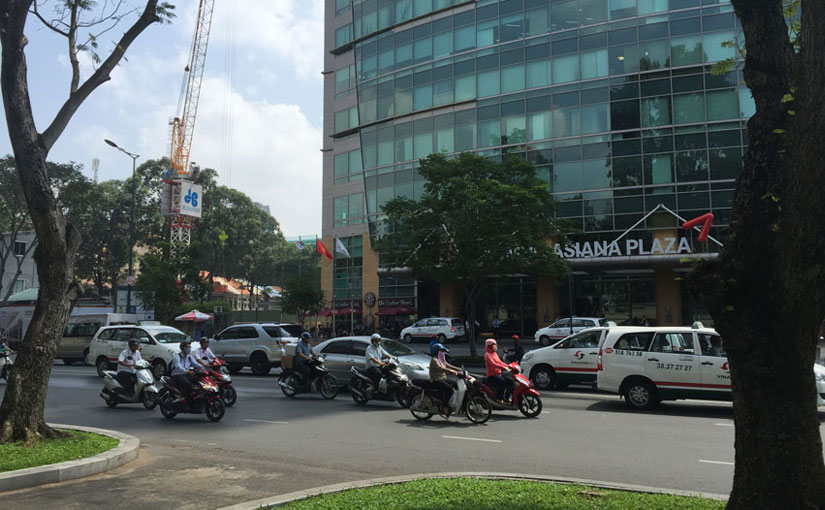-
Vietnam Investment Update – October 2015
-
October ushered in a wave of news affecting the investment climate of Vietnam, for the most part adding to the country’s increasing attractiveness to foreign investors. The country is on track to post its highest growth rate since 2008, expected to reach 6.5 percent, while the National Assembly’s Economic Committee told a National Assembly Standing Committee meeting in the middle of the month that GDP growth will likely reach 6.7 percent in 2016.
Recently, we have seen a marked increase in foreign investment interest in Vietnam, particularly in the IT, E-commerce and health sectors. This has been heightened in part to the recent sealing of the Trans-Pacific Partnership (TPP) trade deal, Vietnam’s investment highlight of October.
Trans-Pacific Partnership (TPP) trade deal finalized
After more than five years of negotiations, the Trans-Pacific Partnership (TPP) trade deal was finalized in early October with Vietnam posed to benefit the most out of the 12-nation pact. The pact will allow Vietnam to ship many products tariff free to participating nations, which will provide a massive boost to Vietnam’s already flourishing manufacturing sector. Fitch Ratings recently noted that the TPP trade deal will boost Vietnam’s gross domestic product by 13.6 percent over the next 10 years – almost twice the current growth – while investment bank Goldman Sachs estimates that Vietnam’s economy will surge from its current standing as the 55th largest in the world to number 17 by 2025.
The trade pact, however, still has to be ratified by lawmakers in each of the participating countries before it comes into effect, and this may be a drawn-out process. For Vietnam, ratification and implementation of an international treaty is regulated by the Law on Conclusion, Accession, and Implementation of Treaties and may be ratified by either the President or the National Assembly. Given the importance and high-profile nature of this pact, the treaty will most likely be submitted to the National Assembly. Deputy Minister of Industry and Trade Trade Tran Quoc Khanh, who led the Vietnamese delegation for the final TPP talks, recently said the ratification process for Vietnam will take between 18 and 24 months.
Privatization gets new push
A new privatization push has been ordered as the government in mid October instructed its sovereign wealth fund, the State Capital and Investment Corporation, to sell stakes in ten companies. The divestments are expected to raise more than US$ 3 billion to pay off public debt and to upgrade the country’s healthcare sector. Vietnam’s public debt was recently recalculated by the government at 66.4 percent of GDP – above the safety limit of 65 percent – which in our view currently represents the number one risk to the country’s economy.
Among the ten companies will be dairy producer Vinamilk (of which the government holds a 45.1 percent stake), long considered a shining stock pick among foreign investors for its market domination, growth projection and relatively efficient corporate structure. As the country’s second largest company in terms of market capitalization, the government’s divestment out of Vinamilk will bring in US$2.5 billion compared to a combined US$500 million for the remaining nine companies. We expect foreign investors to make significant investments in several of the ten companies, particularly Vinamilk, Bao Minh Insurance Corporation, FPT Corporation and FPT Telecom Company.
VP Bank looking for strategic partner while new scandal hits Agribank
Vietnam Prosperity Bank (VP Bank) announced it is seeking a foreign strategic partner to take a 20 percent ownership in the bank, which is Vietnam’s eight largest lender. In addition, the bank announced it will sell stakes in two of its subsidiaries – VP Bank Securities Company and VP Bank Finance Company – in order to raise the bank’s chartered capital and improve the effectiveness of the two subsidiaries. For its strategic partner, the bank is looking to sell 30 percent of its current chartered capital, which will translate into a 20 percent ownership under the raised capital from the divestment of the two subsidiaries.
We looked into VP Bank after the Singapore-based Overseas Chinese Banking Corporation Limited (OCBC) withdrew its shares in the bank in 2013. We found it has a relatively good corporate structure and management system but some issues came up regarding individual shareholders and speculation that key principal and chairman Ngo Chi Dung owns a larger stake than officially listed through the use of nominee shareholders. Yet, Dung is regarded as a reputable and competent banker who leads a very modest life-style despite his wealth. We view VP Bank as an attractive investment for a foreign partner and expect a deal will be reached in the coming months.
Meanwhile, eighteen people were indicted in October in a fraud scandal involving Vietnam’s largest bank, Vietnam Bank for Agriculture and Rural Development (Agribank). Among those indicted are former Agribank Chairman Pham Thanh Tan and his former deputy Kieu Trong Tuyen. They have been charged with power abuse, dereliction of duty and violations of regulations on lending activities related to approving loan applications from a foreign manufacturing company – Lifepro Vietnam Joint Venture Company – that reportedly falsified documents to use six fashion trademarks as collateral for their loans from the bank. For approval of the loans, Agribank officials allegedly received some $900,000 in kickbacks. Although Vietnam’s banking sector is in a process of reform and attracting more foreign investor interest, cases like this highlight corruption risks and the lack of transparency in the sector.

